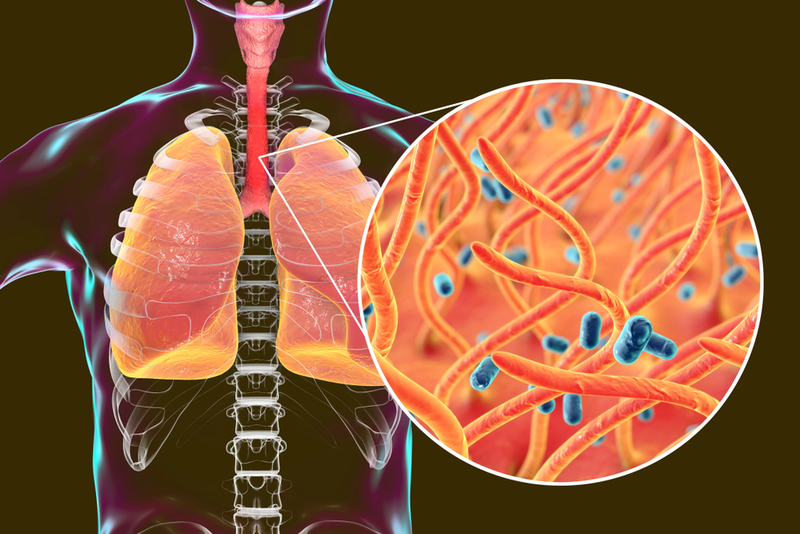Pertussis, a highly contagious disease of respiratory tract
UNI Jul 02, 2018
Pertussis, also known as whooping cough, is a highly contagious disease of the respiratory tract caused by Bordetella pertussis, a bacteria that lives in the mouth, nose, and throat.

Many children who contract pertussis have coughing spells that last four to eight weeks. The disease is most dangerous in infants and spreads easily from person to person, mainly through droplets produced by coughing or sneezing. The first symptoms generally appear 7–10 days after infection, and include mild fever, runny nose, and cough, which in typical cases gradually develops into a paroxysmal cough followed by whooping (hence the common name of whooping cough).
In the youngest infants, the paroxysms may be followed by periods of apnoea. Pneumonia is a relatively common complication; seizures and encephalopathy occur more rarely. Untreated patients may be contagious for three weeks or more following onset of the cough. Pertussis can be prevented by immunization.
For several decades, infant immunization programmes around the world have been highly successful in using pertussis vaccines of documented quality to prevent severe pertussis in infants. WHO estimates that in 2008 global vaccination against pertussis prevented approximately 687 000 deaths. The main aim of pertussis vaccination is to reduce the risk of severe pertussis in infancy.
The ongoing priority of immunization programmes worldwide is to vaccinate at least 90 percent of infants with three doses of high-quality pertussis vaccine. WHO recommends the first dose be administered as early as 6 weeks of age; with subsequent doses given 4–8 weeks apart, at age 10–14 weeks and 14–18 weeks. Although vaccination can prevent pertussis in adolescents and adults, there is insufficient evidence that vaccine boosters in these age groups can reduce severe pertussis in infants.
When a country implements a programme for adults, vaccination of health care workers should be prioritized, especially those with direct contact with pregnant mothers and infant patients. Vaccination of pregnant women is likely to be the most cost-effective additional strategy for preventing disease in infants too young to be vaccinated and appears to be more effective and favourable than cocooning.
-
Exclusive Write-ups & Webinars by KOLs
-
Daily Quiz by specialty
-
Paid Market Research Surveys
-
Case discussions, News & Journals' summaries